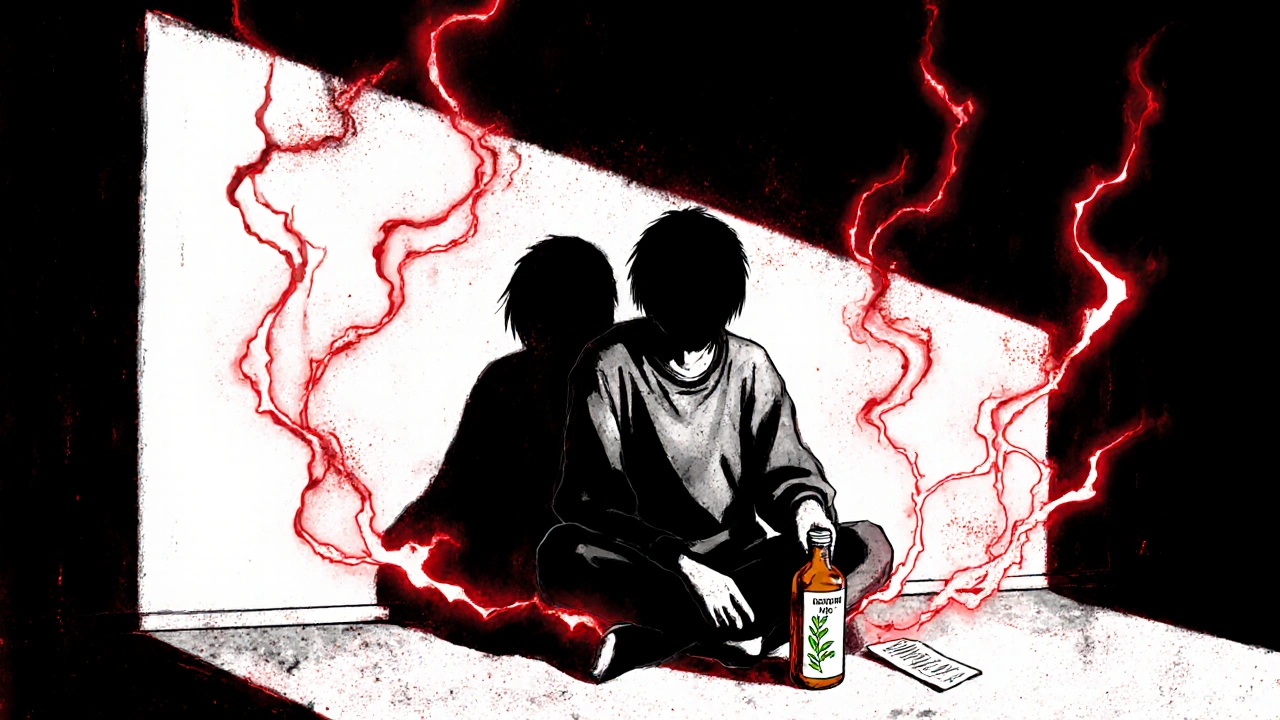SSRIs: What They Are, How They Work, and What You Need to Know
When you hear SSRIs, selective serotonin reuptake inhibitors, a class of antidepressants that increase serotonin levels in the brain. Also known as antidepressants, they are among the most prescribed medications for depression, anxiety, and some obsessive-compulsive disorders. Unlike older antidepressants, SSRIs don’t knock you out or wreck your appetite—they’re designed to help you feel more like yourself without the heavy side effects.
SSRIs work by blocking the reabsorption of serotonin, a chemical your brain uses to regulate mood, sleep, and even digestion. More serotonin hanging around in your brain means better signal flow between nerve cells. That’s why they help with low mood, panic attacks, and even chronic worry. But they don’t work like magic pills. It takes 4 to 6 weeks for most people to feel the difference, and not everyone responds the same way. Some need to try three or four different SSRIs before finding one that fits. Common ones include fluoxetine (Prozac), sertraline (Zoloft), escitalopram (Lexapro), and paroxetine (Paxil). Each has its own profile—some are more energizing, others more calming—and your doctor picks based on your symptoms, other meds, and even your genetics.
Side effects are real, but often mild and temporary. Nausea, headaches, dry mouth, and sleep changes are common at first. Sexual side effects—like lower desire or trouble reaching orgasm—are reported by up to half of users. That’s why some people stop taking them too soon. But if you stick with it, those issues often improve. And if they don’t, switching to another SSRI or adding a low-dose medication like bupropion can help. It’s also important to know that stopping SSRIs cold turkey can cause dizziness, brain zaps, and flu-like symptoms. Tapering down slowly under a doctor’s care makes all the difference.
SSRIs aren’t just for depression. They’re used for OCD, PTSD, social anxiety, panic disorder, and even severe PMS. Some doctors even prescribe them for chronic pain or migraines, because serotonin plays a role in how your nerves send pain signals. But they’re not for everyone. If you have bipolar disorder, SSRIs can trigger mania. If you’re on certain pain meds or supplements like St. John’s wort, you risk a dangerous condition called serotonin syndrome. That’s why it’s critical to tell every provider what you’re taking—every pill, every herb, every vitamin.
There’s a lot of noise out there about SSRIs: some say they’re overprescribed, others say they’re life-saving. The truth? They work for millions, but they’re not a one-size-fits-all fix. What matters is finding the right match for your body, your symptoms, and your lifestyle. Below, you’ll find real-world guides on how these drugs interact with other treatments, what to do when they don’t work, and how to spot when something’s off. These aren’t theory pieces—they’re written by people who’ve been there, and they’ll help you make smarter choices.
St. John’s Wort and SSRIs: The Hidden Danger of Serotonin Syndrome
St. John’s Wort may seem like a safe natural remedy for depression, but combining it with SSRIs can trigger serotonin syndrome - a life-threatening condition. Learn the risks, symptoms, and what to do instead.
About
Medications
Latest Posts


Top 5 Alternatives to NorthwestPharmacy.com for Your 2025 Prescription Needs
By Orion Kingsworth Feb 4, 2025

The Connection Between Muscle Stiffness and Chronic Pain Conditions
By Orion Kingsworth Jun 18, 2023

Introducing Peony: The Dietary Supplement That's Taking the Health World by Storm
By Orion Kingsworth Jul 6, 2023

